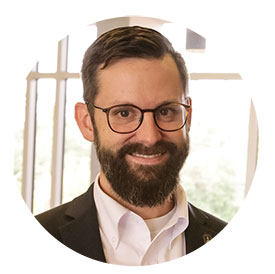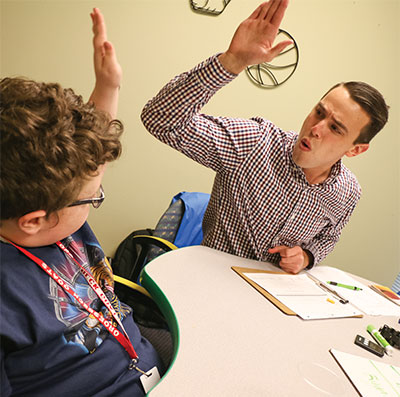Message from the Chair: Educational Psychology
Building on the Past — Impacting the Future
Firm Foundation
Baylor’s commitment to sound educational practice actually predates the School of Education’s establishment by a full 30 years, when in 1889 the University’s first course on pedagogy — the study, science and, to a lesser extent, art — of teaching was offered. In keeping with the national trends of the day, the Normal Department soon followed, after which came the Pedagogy Department and a model school, influenced by both European and American practices.
The School of Education’s early faculty were from Harvard University, Columbia University, and the University of Chicago, which is significant not because of the reputations of those institutions today but rather the reputations of those institutions at the time. So much of what we, as educators, now know and believe about how people think and learn comes directly from psychology, and over time a specialization of psychology focused on teaching and learning — educational psychology — emerged. Many of the most influential thinkers and scholars in educational psychology were affiliated with the aforementioned institutions as students and/or faculty members around and during the time when the School of Education was established. It is possible that the first faculty in the School of Education — T.D. Brooks, Robert Davis, and W.S. Allen — were students of or contemporaries of these scholars.
In the more than 60 years since the installment of the Department of Educational Psychology, graduate and undergraduate programs alike have flourished due to the high quality of the students and faculty. As a field, educational psychology subsumes areas specializing in academic, behavioral, cognitive, emotional, psychological and social factors related to the ways students learn and thrive. Students, on the whole, have more diverse sets of needs than ever before, and the Department of Educational Psychology, building on its rich history, is uniquely positioned to prepare future educators, practitioners, clinicians and scholars not only for successful careers but also for opportunities to lead and serve their communities and circles of influence in ways consistent with Baylor’s unambiguous Christian mission. The department has grown to include 14 faculty members with expertise in applied behavior analysis, human exceptionalities, school psychology, quantitative methods, and learning & development, each of which plays a critical role in effective education. Research-based Practice
Rooted in behaviorism, applied behavior analysis is the most research-based practice for teaching individuals with autism spectrum disorder and other developmental disabilities. The study of exceptionalities includes special education, gifted and talented services, and other services to benefit students with unique learning needs. A growing area of emphasis is related to the needs of students who are “twice exceptional” — that is, students who are gifted in one area but also qualify for special education services. The graduate programs at Baylor are among few in the country to focus on this growing need.
There is a well-documented current and projected shortage of school psychologists in Texas and nationwide, which has, in part, exacerbated the societal need for mental health assessments for children. Similarly, there is a documented shortage of professionals with quantitative skills, and the ability to analyze quantitative data is considered a “top skill” for positions in federal and state governments, state and local educational agencies, private industry, consulting firms, non-profit organizations and offices of institutional research in post-secondary institutions. Learning and development have been and will remain at the heart of what we do, as educators, scholars and practitioners. Graduate Education
For nearly a decade, the Department of Educational Psychology has ranked among the top departments at Baylor for doctoral student publication and graduate student presentations at professional meetings. Each of these clearly demonstrates the department’s existing and continued commitment to research and scholarship marked by quality, impact and visibility, as well as transformational undergraduate education, both of which are pillars of Illuminate. As we remember our rich history and look to build on our current successes to carry us into the next season of life, I believe the faculty and staff 100 years from now will remember us, just as we now recognize those who predated us. Indeed, the programs and specializations housed within the department are critical for the success of our students and ultimately society.

